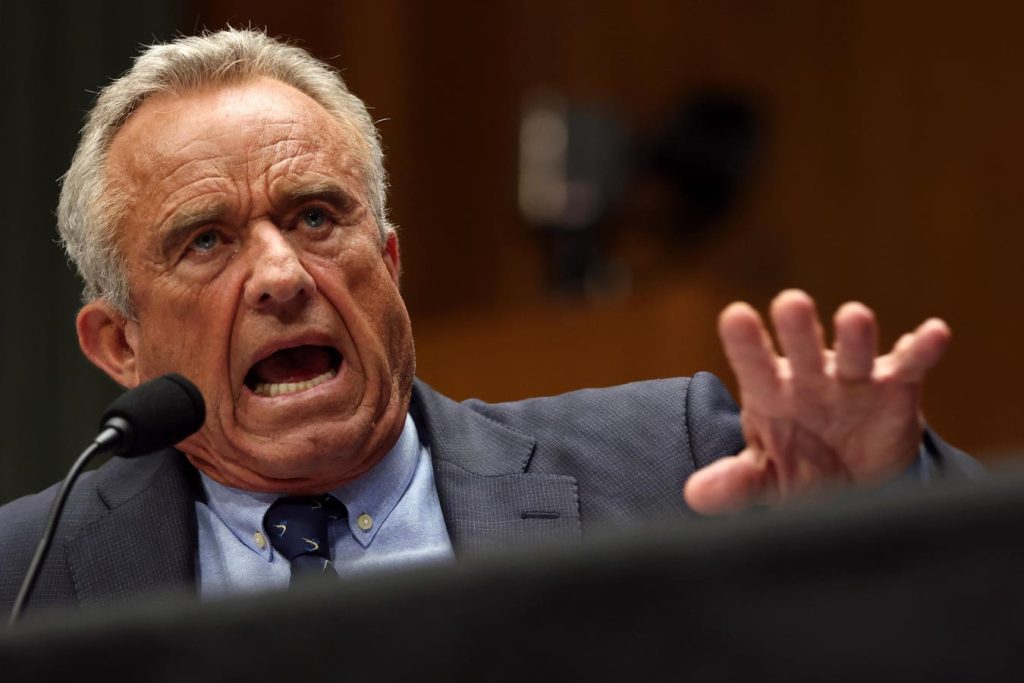The Shifting Landscape of U.S. Vaccination Policy
The CDC’s immunization advisory committee (ACIP) is about to convene for a critical meeting that could significantly reshape America’s vaccination policies. This isn’t just another routine gathering of public health officials. Secretary Robert F. Kennedy Jr. recently replaced the committee’s membership with individuals who share his skeptical views on vaccines, setting the stage for potential dramatic shifts in recommendations for childhood vaccines against hepatitis B, measles, chickenpox, and COVID-19. Since 1964, ACIP has played a crucial role in establishing evidence-based immunization schedules that inform state-level school vaccination requirements and insurance coverage decisions. The global impact of immunization programs has been profound, with a recent Lancet study estimating that vaccination efforts saved over 154 million lives between 1974 and 2024, including more than 100 million children. This meeting represents a pivotal moment where decades of public health consensus could be upended.
Secretary Kennedy has wasted no time in advancing anti-vaccine policies since his appointment. He’s announced a no-bid contract to Rensselaer Polytechnic Institute to investigate long-debunked connections between vaccines and autism and appointed committee members like Retsef Levi and Robert Malone, who have actively opposed COVID-19 vaccines, despite evidence that these vaccines saved an estimated 14.4 million lives in their first year of availability. Sources indicate that ACIP may restrict COVID-19 vaccine recommendations to people over 75 and a narrow subset of younger individuals with specific conditions. Dr. Paul Offit, a respected vaccine expert from Children’s Hospital of Philadelphia, expressed grave concern: “We should be very worried because ACIP isn’t ACIP anymore. It’s essentially an arm of our Secretary of HHS who is an anti-vaccine denialist and has been for the last 20 years.” This shift has created unprecedented uncertainty for pharmaceutical companies that have long operated in a regulatory environment where vaccine policies were grounded in scientific evidence rather than political ideology.
The financial implications for vaccine manufacturers are substantial, with the global vaccine market estimated at $88 billion last year, largely dominated by U.S. companies. When Trump Administration health officials announced investigations into unsubstantiated reports of child deaths from COVID vaccines, shares of major vaccine producers plummeted. Moderna, which derives most of its revenue from mRNA vaccines, saw its stock drop 7%, while Pfizer, with a more diversified portfolio, fell 4%. Even Novavax, which produces protein-based rather than mRNA COVID vaccines, experienced a 4% decline. Healthcare analyst Rajiv Leventhal noted, “There’s a lot at stake, even if not a ton of [pharmaceutical companies’] annual sales are tied to it. They could be looking at declines that just have not been anticipated.” Kennedy’s actions as HHS Secretary have already had tangible impacts—he cancelled a $760 million contract with Moderna for an mRNA flu vaccine, cut nearly $500 million in mRNA vaccine research funding, and supported FDA restrictions on COVID-19 vaccine eligibility that have created confusion among those seeking protection ahead of fall illness surges.
The potential consequences extend far beyond the financial health of pharmaceutical companies to the actual health of Americans, particularly children. The U.S. childhood immunization program stands as one of public health’s greatest achievements, having eradicated measles by 2000, reduced hepatitis B infections by 99%, and made whooping cough uncommon. Despite overwhelming public support—79% of American adults favor school vaccination requirements according to a Harvard T.H. Chan School of Public Health poll—childhood vaccination rates continue to decline. Research published in the Journal of the American Medical Association suggests that even a 10% drop in childhood vaccinations could result in millions of hospitalizations and tens of thousands of deaths among children. We’re already seeing the consequences, with historic outbreaks of measles and whooping cough occurring this year as immunization rates fall. Any further weakening of vaccination recommendations by ACIP could accelerate this dangerous trend, undermining decades of progress in preventing childhood diseases.
The vaccination policy landscape is becoming increasingly fragmented across the United States. At least 14 states, including New York and New Mexico, have established their own pro-vaccine policies for COVID-19 shots, while Florida has announced plans to eliminate state vaccine mandates entirely without studying potential consequences. Analyst Leventhal predicts this fragmentation will likely spread to other vaccines: “It’s just going to be a scattershot, fragmented regulatory vaccine landscape across the country.” ACIP might explicitly defer policy decisions to states or issue recommendations so contrary to scientific consensus that many states will choose to follow guidance from their own public health agencies or medical organizations instead. This creates additional confusion around insurance coverage. Once ACIP recommendations are signed by the CDC director, Medicare, Medicaid, and commercial plans must provide recommended vaccines at no cost to eligible patients. If these recommendations become narrower than the medical consensus, coverage could contract accordingly, potentially affecting the 37 million children covered by Medicaid and CHIP who might lose access to free preventative vaccinations.
As the ACIP meeting approaches, uncertainty looms large. Kennedy has instructed the committee to review hepatitis B recommendations and continues to promote debunked claims linking vaccines to autism—despite the CDC’s clear statement that no such link exists. During June’s ACIP meeting, committee member Martin Kuldorff presented a widely criticized report suggesting the MMRV vaccine (protecting against measles, mumps, rubella, and chickenpox) was linked to childhood seizures, a topic that returns to the agenda this week. The administration has also stopped inviting medical association experts to provide input on vaccine science and drastically reduced vaccine manufacturers’ opportunities to present updated COVID data. Dr. Offit summarized the uncertain outlook: “Literally anything could happen. I think they could not encourage hepatitis B. They may say the RSV vaccine isn’t working the way it should…. I think they could say other countries don’t use the chicken pox vaccine, so why should we?” The implications of such decisions would ripple through American healthcare, potentially reversing decades of progress in disease prevention and creating a patchwork of inconsistent policies that could leave millions vulnerable to preventable illnesses.






